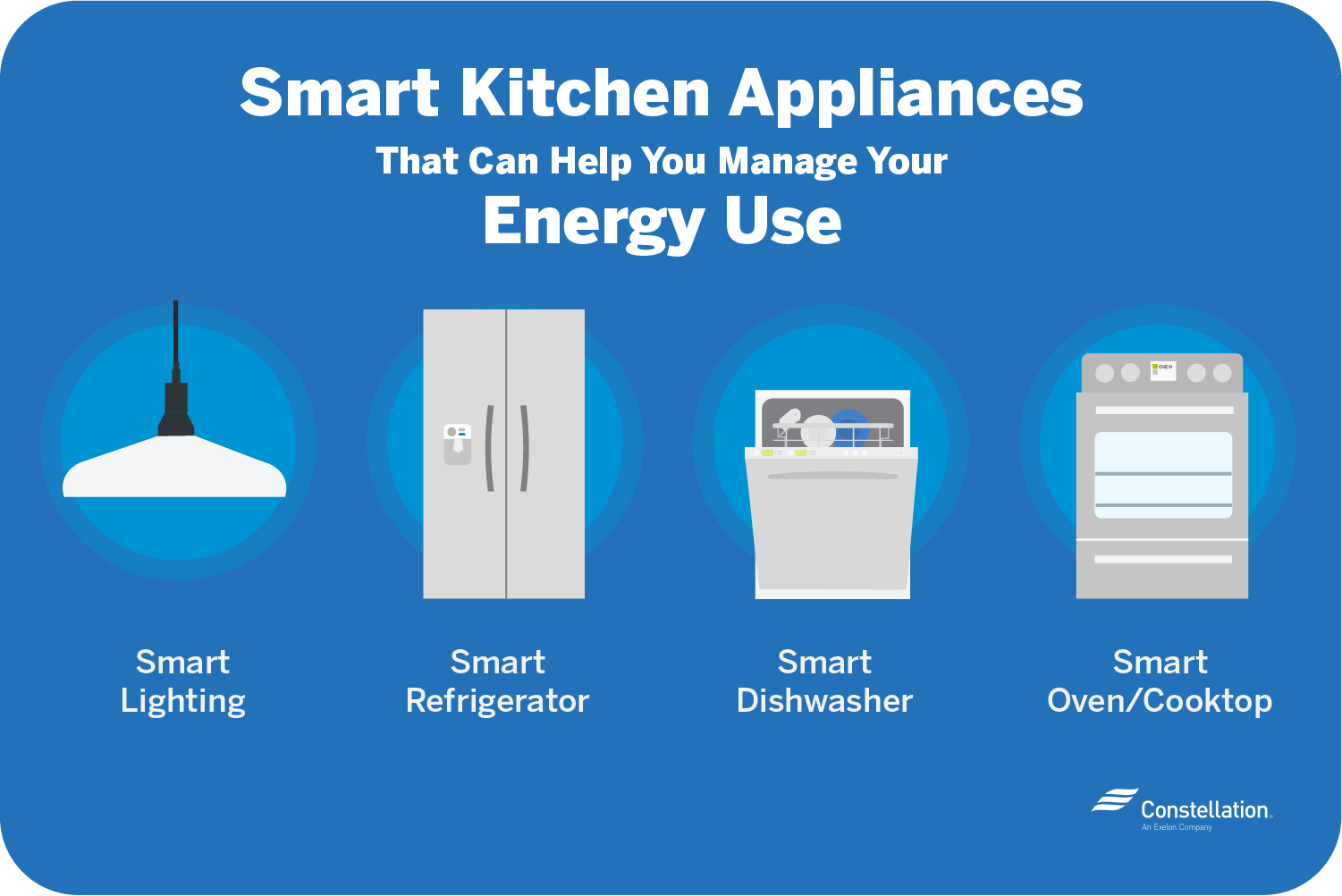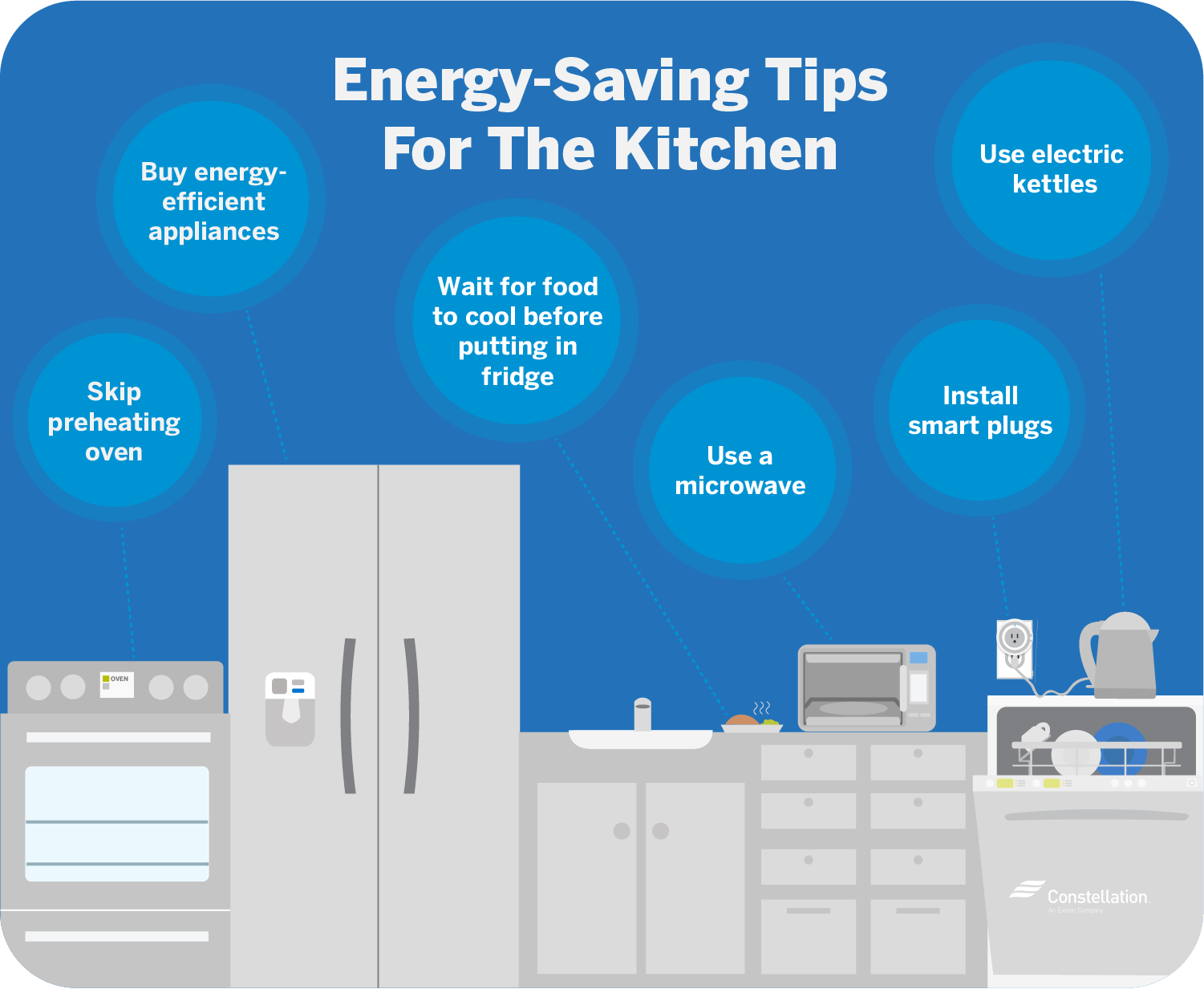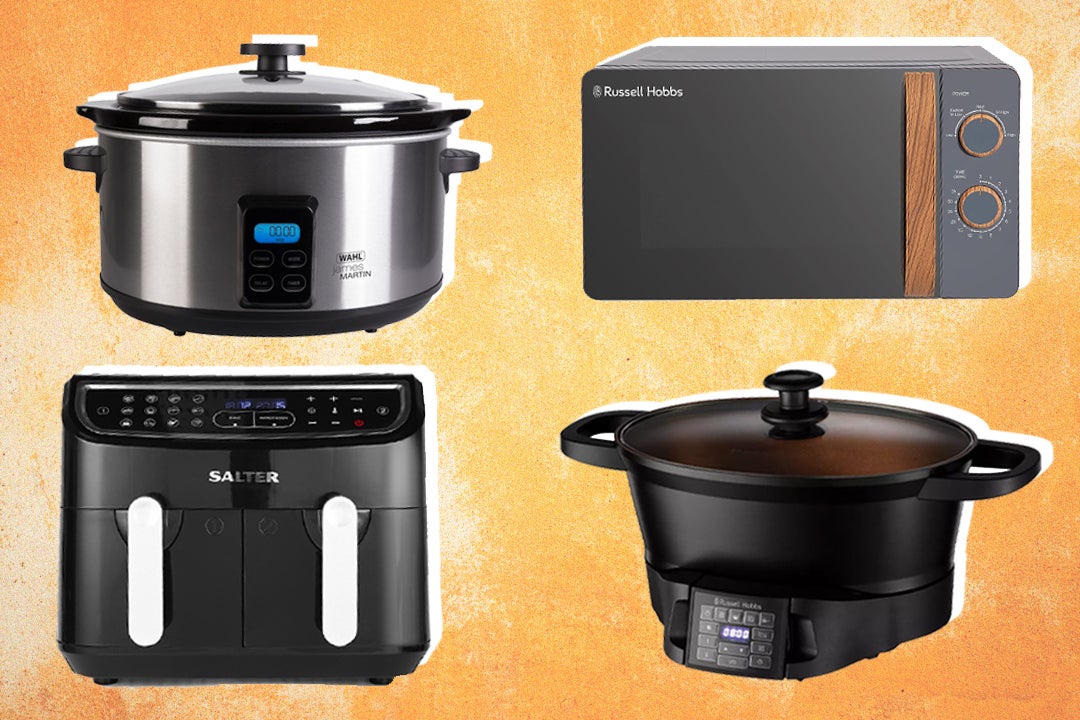Energy-efficient kitchen appliances can save you money and reduce your carbon footprint. By using less energy, these appliances help to conserve resources and reduce greenhouse gas emissions.
Upgrading to energy-efficient appliances is a smart investment for both the environment and your wallet. In today’s world, where environmental concerns are becoming more and more pressing, energy-efficient kitchen appliances have gained immense popularity. These appliances are designed to consume less energy while performing the same functions as their traditional counterparts.
They use modern technology and innovative features to achieve this goal. Energy-efficient appliances not only help to reduce your energy bills but also contribute to the preservation of the environment. They are available in a wide range of options, including refrigerators, dishwashers, ovens, and more. By investing in these appliances, you can make a positive impact on the environment while enjoying the latest in kitchen technology.
The Rise Of Energy-efficient Kitchen Appliances
The market for energy-efficient kitchen appliances has seen a significant rise in recent years. Manufacturers are responding to consumer demand for more sustainable options by developing appliances that consume less energy. This trend is driven by a growing awareness of environmental issues and a desire to reduce energy costs. Consumers are increasingly seeking out appliances with high Energy Star ratings and other energy-efficient certifications. The availability of these products in the market reflects a larger shift towards sustainability and energy conservation. As a result, we are seeing a wider range of energy-efficient kitchen appliances becoming more accessible to consumers.

Comparing Energy Consumption
Energy-efficient kitchen appliances can significantly reduce your utility bills over time. When comparing energy consumption, standard models typically consume more electricity than their energy-efficient counterparts. This difference can have a noticeable impact on your monthly expenses. Energy-efficient models are designed to use less energy while still providing the same level of performance. By opting for energy-efficient kitchen appliances, you can contribute to a greener environment and save money in the long run.
Certifications And What They Mean
Energy-efficient kitchen appliances often come with certifications such as Energy Star, which indicates lower energy consumption and cost savings. These certifications assure consumers that the appliances meet strict energy efficiency guidelines, helping to reduce environmental impact and save on utility bills.
Energy-efficient kitchen appliances are a great way to reduce your carbon footprint and save on energy costs. When it comes to certifications, the Energy Star label is one of the most well-known and trusted eco-labels in the industry. Appliances with this label meet strict energy efficiency criteria set by the Environmental Protection Agency (EPA). In addition to Energy Star, there are other eco-labels that indicate an appliance’s energy efficiency. These labels may vary depending on the country or region. Some examples include the European Union Energy Label and the EnerGuide label in Canada. Deciphering the ratings on these labels can be a bit overwhelming, but it’s important to understand what they mean. The energy efficiency rating is typically displayed on a scale from A+++ to D, with A+++ being the most efficient. This rating helps consumers compare the energy consumption of different appliances and make informed choices. By opting for energy-efficient kitchen appliances with the appropriate certifications, you can not only reduce your environmental impact but also save on your energy bills in the long run.Top Energy-efficient Kitchen Appliances
Refrigerators are a vital component of any kitchen, and opting for energy-efficient models can significantly reduce your energy consumption. Look for refrigerators with features like adjustable temperature controls, efficient insulation, and LED lighting. These improvements can help minimize energy wastage and save you money on your electricity bills.
Ovens and ranges are another area where you can make energy-efficient choices. Look for models that offer features like convection cooking, which uses a fan to circulate hot air and cook food faster. Additionally, choose appliances with self-cleaning options, as this can help you save energy by reducing the need for high-temperature cleaning cycles.
By investing in energy-efficient kitchen appliances, you not only contribute to a greener environment but also save money in the long run. Make sure to look for the ENERGY STAR label, which indicates that the appliance meets strict energy efficiency guidelines set by the U.S. Environmental Protection Agency.
Smart Features That Enhance Efficiency
Modern kitchen appliances are designed to be energy-efficient, with smart features that help enhance their efficiency even further. One such feature is the automated energy-saving mode that many appliances come equipped with. This mode allows the appliance to automatically adjust its energy consumption based on usage patterns, thereby reducing overall energy consumption.
Connectivity and energy management are also key features of energy-efficient kitchen appliances. With the ability to connect to smart home systems, appliances can be monitored and controlled remotely, allowing for greater energy management. This feature is particularly useful for appliances such as refrigerators, which can be set to energy-saving mode when not in use.
Overall, the smart features of energy-efficient kitchen appliances make them a worthwhile investment for any household looking to reduce their energy consumption and save money on their energy bills.

The Cost-benefit Analysis
Analyzing the cost and benefits of energy-efficient kitchen appliances is crucial for making informed purchasing decisions. These appliances may have a higher initial cost, but they offer long-term savings through reduced energy consumption, ultimately leading to a positive cost-benefit outcome.
| The Cost-Benefit Analysis |
|---|
| When considering energy-efficient kitchen appliances, it’s important to weigh the initial investment against the long-term savings. While these appliances may have a higher upfront cost, the money saved on utility bills over time can make up for it. For example, an energy-efficient refrigerator can save up to $300 over five years compared to a non-efficient model. Additionally, these appliances often have a longer lifespan, reducing the need for frequent replacements. This can also increase the resale value of your home. Overall, the cost-benefit analysis shows that investing in energy-efficient kitchen appliances can lead to significant long-term savings. |
Incentives And Rebates
Upgrading your kitchen appliances to energy-efficient models not only helps reduce your carbon footprint but can also lead to significant cost savings. Governments offer various incentives to encourage individuals to make these upgrades. By taking advantage of government programs, you can receive financial assistance or tax credits for purchasing energy-efficient appliances.
In addition to government incentives, many utility companies also offer rebates and programs to promote energy conservation. These rebates can help offset the initial cost of purchasing energy-efficient kitchen appliances. Some utility companies even provide free energy audits and consultations to help you identify areas where you can further improve energy efficiency in your kitchen.
| Government Incentives for Upgrading | Utility Company Rebates and Programs |
|---|---|
| – Financial assistance and tax credits | – Rebates to offset appliance costs |
| – Incentives for purchasing energy-efficient models | – Free energy audits and consultations |
| – Promotes energy conservation | – Identifying areas for further improvement |
By taking advantage of these incentives and rebates, you not only contribute to a greener environment but also enjoy long-term cost savings in your kitchen.
Eco-friendly Maintenance Tips
Creating an energy-efficient kitchen is not only beneficial for the environment, but it can also help save you money on your utility bills. By following some simple eco-friendly maintenance tips, you can maximize the efficiency of your kitchen appliances.
When it comes to daily habits for maximum efficiency, make sure to unplug appliances when they are not in use, as they can still consume energy in standby mode. Additionally, using lids while cooking can help retain heat and reduce cooking time. Remember to clean the coils on your refrigerator regularly to ensure optimal performance.
For long-term care and sustainability, consider investing in energy-efficient appliances with high energy star ratings. These appliances are designed to use less energy without compromising on performance. Moreover, proper maintenance, such as regularly defrosting the freezer and cleaning the dishwasher’s filter, can help prolong the lifespan of your appliances.
| Eco-Friendly Maintenance Tips |
|---|
| Daily Habits for Maximum Efficiency |
| – Unplug appliances when not in use |
| – Use lids while cooking |
| – Clean refrigerator coils regularly |
| Long-Term Care for Sustainability |
| – Invest in energy-efficient appliances |
| – Defrost freezer regularly |
| – Clean dishwasher filter |
Integrating Appliances Into A Green Home
When it comes to creating an energy-efficient kitchen, integrating appliances that are designed with sustainability in mind is crucial. These appliances are designed to minimize energy consumption and reduce the overall carbon footprint of the home. By choosing energy-efficient kitchen appliances, homeowners can significantly contribute to a greener environment while also enjoying the benefits of lower utility bills. Complementing a holistic eco-friendly design involves selecting appliances that align with the overall sustainability goals of the home. Additionally, coordinating these appliances with renewable energy sources such as solar panels or wind turbines can further enhance the eco-friendly nature of the kitchen. This integration ensures that the kitchen operates in harmony with the environment, promoting a more sustainable and energy-efficient lifestyle.

Frequently Asked Questions
What Is The Most Energy-efficient Appliance In Most Kitchens?
The most energy-efficient appliance in most kitchens is the refrigerator. It consumes less power due to advanced technology and insulation. Refrigerators with an ENERGY STAR rating are even more energy efficient, saving both electricity and money in the long run.
Which Cooking Appliances Use The Least Electricity?
Cooking appliances that use the least electricity include slow cookers, pressure cookers, toaster ovens, and induction cooktops. These appliances are energy-efficient and can help reduce your electricity bills.
What Is The Most Energy-efficient Cooking Device?
The most energy-efficient cooking device is the microwave oven. It uses less energy than a stove or oven and cooks food faster. Additionally, using a microwave also reduces the need for cookware and utensils, further reducing energy consumption.
What Appliances Are Energy-efficient?
Energy-efficient appliances include LED light bulbs, smart thermostats, energy star-rated refrigerators, front-loading washing machines, and dishwashers with an energy-saving mode. These appliances consume less power, helping to reduce energy bills and minimize environmental impact.
Conclusion
Opting for energy-efficient kitchen appliances not only helps reduce your carbon footprint but also saves you money in the long run. By choosing appliances with high energy-efficiency ratings, you can significantly lower your energy consumption and contribute to a greener environment.
So, make a conscious decision to invest in these appliances and enjoy the benefits of lower energy bills and a more sustainable lifestyle. Upgrade your kitchen with energy-efficient appliances today!
